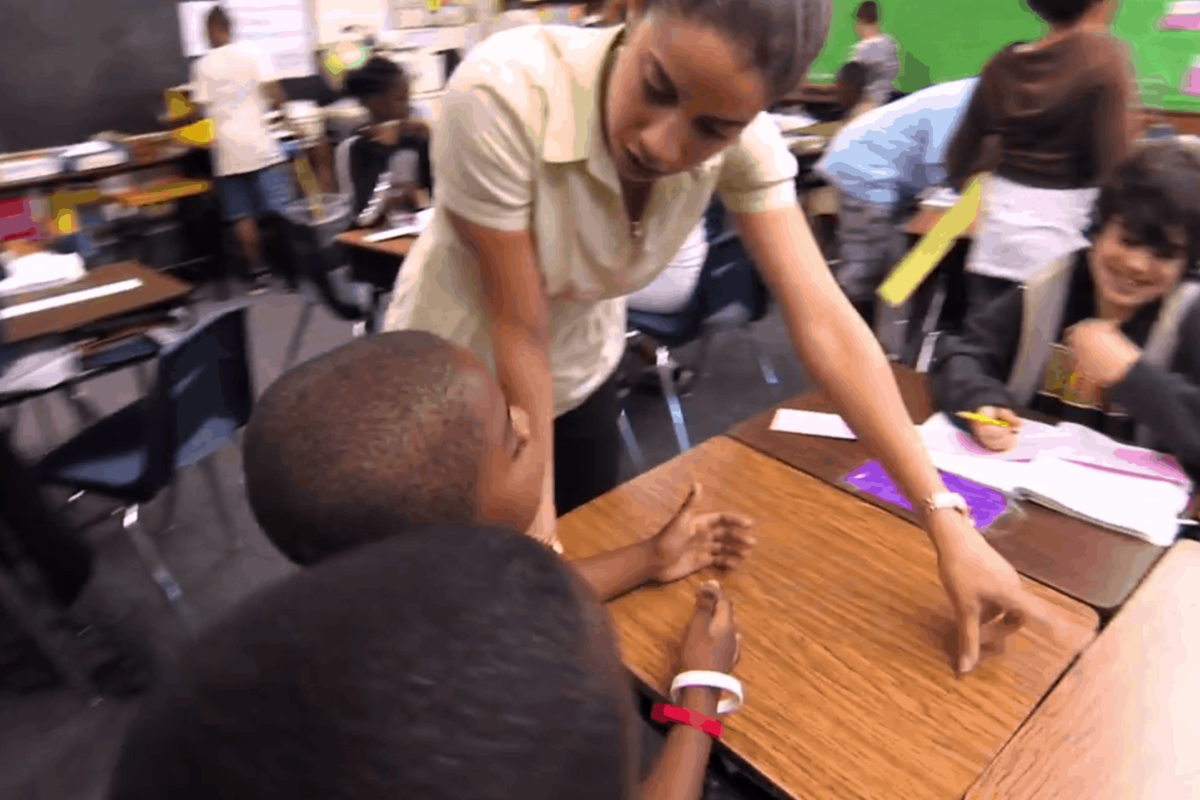What Is Effective Pedagogy?
What makes effective pedagogy so important? Well, if employed correctly, it will help students achieve important learning while reaching their full educational potential. A quality pedagogy will give students a solid learning base and help aid students in their development.

Over the past number of decades, education has seen a lot of transformation. Teachers have had to adjust to different styles of students and students have had to adjust to different styles of teachers. Through it all, one constant has remained: The relationship between teacher and student. Effective pedagogy is the bridge. It is how both teacher and student communicate. These are methods in which a teacher employs in order to deliver their lesson while ensuring proper techniques are being used so students can best respond to the information taught.
Pedagogy, as seen by educationists, is a tool of effective teaching and learning. It is the interaction between teacher and student and the most effective way a classroom can work. Not all classrooms are alike as not all teachers and students are alike. Therefore, there are various effective pedagogy practices that can be implemented.
Although there are different methods of approach with an effective pedagogy, the goal is always the same. Develop effective learning experiences for students. With formal education in flux, the teacher-student relationship is more important than ever. Even as more and more students find themselves learning from home, the learning experience should be a positive one. Quality education demands are at an all-time high right now. This makes an effective pedagogical approach of utmost importance.
THE EFFECTIVE PEDAGOGY IMPORTANCE
What makes effective pedagogy so important? Well, if employed correctly, it will help students achieve important learning while reaching their full educational potential. A quality pedagogy will give students a solid learning base and help aid students in their development.
An effective pedagogy doesn’t just benefit students. It will also help teachers improve their quality of teaching. This improvement will allow for students to become more receptive during class and upping their participation level.
An appropriate pedagogy is key in helping students with different styles of learning or ability. It will allow for students to develop a deeper understanding of the material being presented. This will ensure, hopefully, a positive outcome for both student and teacher.
A careful and thoughtfully developed pedagogy will ultimately help students develop their higher-level cognitive skills. These are synthesis, analysis, and evaluation. Styles make classrooms, so a teacher with the right pedagogical approach toward their students is a step in the right direction.
WHAT FACTORS AFFECT PEDAGOGY?
There are a number of factors that can influence an effective pedagogy. First and foremost would be the competence of the teacher. One who is competent will be able to keep students interested and motivated while being eager to learn.
With that in mind, the learning style of students also comes into play. If a teacher is aware or becomes so quickly, they can adapt their style to best suit their students. It helps accelerate the students’ learning process.
The subject being taught is also another factor that can influence an effective pedagogy. If Political Science is being taught, the need for laboratory work is nil. On the other hand, if the subject is physics, not only would laboratory sessions be necessary, but a good balance of theory would also be needed.
What about additional resources? If they are available, (these would be items such as projectors, etc.) they can greatly enhance the teaching-learning process. These educational resources are important in keeping students engaged. On the flip side of that, if these resources were not available, it could hinder the direction a teacher could go.
Article continues below headlines

The Best Type Of Butter Dish For Your Home Kitchen
The history of the butter dish is intertwined with the history of butter itself and the evolution of dining etiquette. …
Continue reading "The Best Type Of Butter Dish For Your Home Kitchen"
The post The Best Type Of Butter Dish For Your Home Kitchen appeared first on Tell Me Best.
Continue
Star Trek: The Next Generation Inspired The Worst Episodes Of Later Fan-Favorite Series | GIANT FREAKIN ROBOT
Star Trek: Deep Space Nine was a spinoff of The Next Generation, and like its predecessor, it had a very … ContinueOf course, the educational system, in general, could have a huge influence on an effective pedagogical approach. If certain curriculum standards call for students to memorize facts, it may turn a teacher away from using a pedagogy method that preaches higher-order thinking.
PEDAGOGICAL APPROACHES
There are five standards, or approaches when looking at effective pedagogy. The Center for Research on Education, Diversity & Excellence (CREDE) developed these standards, though we will be presenting them by different names. Regardless of the name, the approach is the same and is crucial to the effective delivery of material to students.
- Constructive Approach – This one is student centered. It can be somewhat slow in pace, but it leans on past knowledge and goes form there. Students learn by doing.
- Reflective Approach – This approach is perfect for the trainee-teacher. The approach is outcome based but also requires teachers to reassess their learning objectives in a timely manner. This approach may lead teachers to change styles.
- Collaborative Approach – This style involves teamwork. The key here is to bring in differing abilities to become one. It also enables the teacher to use different teaching styles with different groups.
- Integrative Approach – Here, the teacher brings the outside world to their students. The curriculum, whatever it may be, becomes more realistic and relatable to the students. Teacher encouragement to students is to apply their acquired knowledge.
- Inquiry-Based Approach – This is another student-centered approach. Inquiry-based excites student curiosity, which is always key in a classroom. Student engagement is high as this approach aims to enhance students problem-solving skills.
FINALLY
Putting any one of these effective pedagogy approaches to work is not a simple task, though it is important. Students nowadays need to be engaged. They need something to keep their minds active and to feel they have a voice in class.
The key to making this all happen is a solid and quick assessment of students. The teacher knows and understands the material they are going to present, so also understanding their classroom will be high on a teacher’s priority list. Once that is established, they can then move on to determine what effective pedagogy approach will work best.







